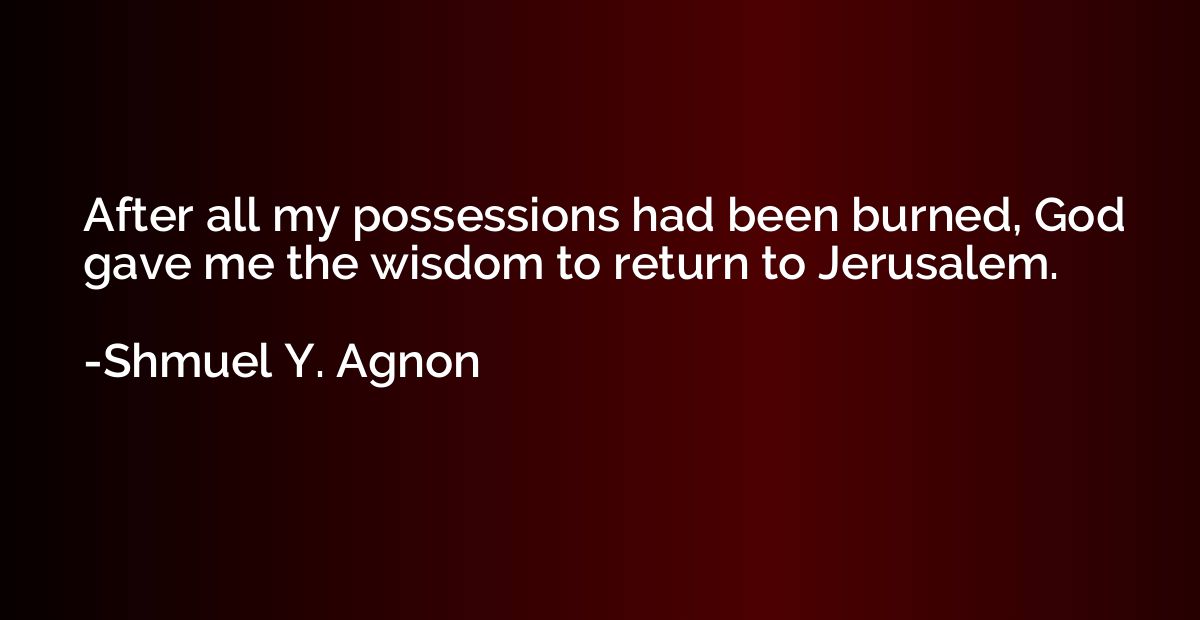Shmuel Y. Agnon Quotes
A collection of quotes by Shmuel Y. Agnon.
Shmuel Yosef Agnon, commonly known as Shmuel Y. Agnon, was a renowned Israeli writer and Nobel laureate in literature. He was born on July 17, 1888, in Buczacz, Austria-Hungary (now part of Ukraine). Agnon's childhood was influenced by his traditional Jewish upbringing and the vibrant Hasidic community.
In 1908, Agnon migrated to Palestine, settling in Jerusalem, where he immersed himself in Jewish and Hebrew literature. He began writing in Hebrew, contributing to various publications and gaining recognition as a writer. Agnon's works encompassed novels, short stories, and essays that embodied his deep understanding of Jewish religious and cultural heritage. His literary style often blended modernist techniques with traditional Jewish storytelling.
Agnon's writings often explored themes of Jewish identity, faith, and the complexities of modern Jewish life. He depicted characters grappling with questions of tradition, assimilation, and the impact of historical events on individuals and communities. Agnon's literature not only sought to preserve Jewish heritage but also to bridge the gap between religious and secular Jews.
Throughout his career, Agnon received numerous accolades for his literary contributions. In 1966, he was awarded the Nobel Prize in Literature, becoming the first Hebrew writer to receive this honor. His remarkable literary legacy continues to inspire readers and scholars worldwide.
Shmuel Y. Agnon passed away in Jerusalem on February 17, 1970, leaving behind a rich and enduring body of work that continues to shape Israeli literature.




